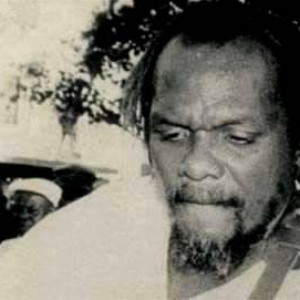
| Trackimage | Playbut | Trackname | Playbut | Trackname |
|---|---|---|---|---|
| 20827907 | Play | Kim | 04:36 Tools | |
| 20827908 | Play | Sweet Music - Sofrito Edit | 04:04 Tools | |
| 20827912 | Play | sweet music | 04:23 Tools | |
| 20827911 | Play | Endless Vibrations | 00:45 Tools | |
| 20827909 | Play | Sweet Music (Sofrito Edit) | 02:00 Tools | |
| 20827910 | Play | Kim (Trinidad) | 04:30 Tools | |
| 20827913 | Play | Vibrations Groove | 00:30 Tools | |
| 20827917 | Play | Indrani | 03:34 Tools | |
| 20827933 | Play | Om Shanti Om | 05:02 Tools | |
| 20827914 | Play | Who God Bless | 05:04 Tools | |
| 58701957 | Play | E Pete | 05:02 Tools | |
| 58701958 | Play | Cory Iron | 04:46 Tools | |
| 20827935 | Play | Shanti Om | 05:02 Tools | |
| 20827918 | Play | Soca Fever | 04:51 Tools | |
| 20827925 | Play | Money Eh No Problem | 05:36 Tools | |
| 58701959 | Play | Ni Tu Whe Whe | 03:22 Tools | |
| 20827927 | Play | Gone Are the Days | 04:46 Tools | |
| 20827916 | Play | Calypso | 03:22 Tools | |
| 20827915 | Play | Keep in Touch | 04:59 Tools | |
| 58701960 | Play | Oh Trinidad | 03:22 Tools | |
| 58701961 | Play | Wo Yo Youi | 03:22 Tools | |
| 58701962 | Play | Om Shanty Om | 05:15 Tools | |
| 20827926 | Play | Higher World Of Music | 05:15 Tools | |
| 58701963 | Play | Saltfish Mentality | 05:15 Tools | |
| 87765922 | Play | You Must Come | 05:15 Tools | |
| 58701964 | Play | we ting | 05:15 Tools | |
| 89621958 | Play | Sweet Music [1976] | 05:15 Tools | |
| 87765923 | Play | Drum Spirits | 05:15 Tools | |
| 58701965 | Play | Bajan Girl | 05:15 Tools |

-
- 8,772
- plays
-
- 3,287
- listners
-
- 8772
- top track count
Ras Shorty I (October 6, 1941-July 12, 2000) was a soca musician, known as the Father of Soca and The Love Man. He was born Garfield Blackman in Barrackpore, Trinidad and Tobago,[1] and rose to fame as Lord Shorty with his 1963 hit "Clock and Dagger". He started out writing songs and performing in the calypso genre. In the 1970s, he began experimenting with calypso by blending it with the local chutney—the music of Trinidad's East Indian population—using instruments such as the sitar and tabla. The style was dubbed "soca". Lord Shorty, as he is still known, released his hit song "Indrani" in 1973, which is considered the first recorded soca piece. The following year's Endless Vibrations earned him a devoted fan base, and a following of musicians who began performing in his style. His fame continued to grow throughout the 1970s, and he became one of the country's top performers. He recorded tracks such as Kim and Money Eh No Problem, which was a stinging political and social commentary based on the words of Trinidad's then Prime Minister, Eric Williams of the People's National Movement. Money Eh No Problem was used in a political advertising campaign in 2000 for the United National Congress. In his early days, he was a known womanizer and fathered 23 children. In 1984, he voiced his disenchantment with soca, claiming it was being used for the wrong reasons. A short time thereafter, he embraced a strict form of Christianity, adopted the name Ras Shorty I and moved with his family to the Piparo forest in the hills of southern Trinidad, where he and his family focused on creating faith-based music. In the late 1980s, he began recording again, fusing soca and gospel in a style he called Jamoo. He continued recording into the late 1990s, writing hits like Watch Out My Children, which focuses on the dangers of drug abuse. The song was recorded in ten languages and was adopted by the UN in an anti-cocaine campaign. He toured transnationally with his band, the Love Circle, which consisted mainly of family members. The Love Circle included his wife Claudette and sons Eldon, Sheldon and Isaac, who have gone on to record several highly infectious hits, such as "Blessed are the Elders" and "To The Ceiling". His daughters, Marge, Neheilet and Avion Blackman also have successful careers in recording and fashion design. The family aims to bring across positive messages with their music, focusing especially on youth. They also exhort modern soca artists to preach positivity and the word of God through their music. Ras Shorty I died in 2000 of multiple myeloma, a type of bone marrow cancer. Read more on Last.fm. User-contributed text is available under the Creative Commons By-SA License; additional terms may apply.